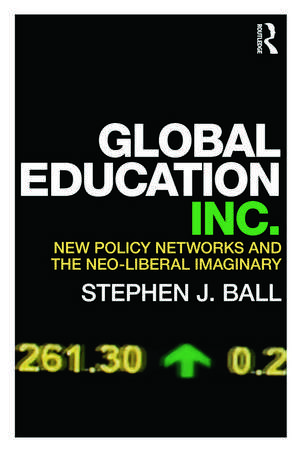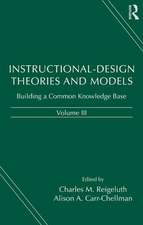Global Education Inc.: New Policy Networks and the Neoliberal Imaginary
Autor Stephen J. Ballen Limba Engleză Paperback – 29 feb 2012
Education policy is being reformed and re-worked on a global scale. Policies are flowing and converging to produce a singular vision of ‘best practice’ based on the methods and tenets of the ‘neo-liberal imaginary’. Philanthropy, business and the governments are coming together in new networks and sites of policy outside of the framework of the nation state. This book is a first step in recording, mapping and making sense of the most important aspects of these new relations and dynamics of policy.
Using the approach of ‘policy sociology’ and the methods of social network analysis, Global Education Inc. explores the policy activities of edu-businesses, neo-liberal advocacy networks and policy entrepreneurs, and of social enterprises and ‘new’ philanthropy. It also addresses the ways in which education and education policy itself are now being exported and bought and sold as profitable commodities and how entrenched problems of educational development and educational quality and access are now being addressed through ‘market solutions’. That is, by the involvement of private providers in the delivery of educational services, both independently and on behalf of the state.
Universities, schools and education services are being acquired as assets by private equity companies. Private storefront schools are being set-up by local entrepreneurs and through franchising arrangements, funded through microloans. School chains funded by philanthropy and run by multi-national edu-businesses are being harnessed to the attempts of developing societies in an attempt to achieve their Millennium Development Goals and provide mass access to basic education. Curriculum materials and pedagogy software and policy ideas such as inspections, leadership, school choice and accountability are being retailed by western ‘knowledge companies’ and consultants across the globe. This book argues that these new forms of policy and policy-making require new concepts and methods of policy analysis, with chapters including:
- Networks, Neo-liberalism and Policy Mobilities
- New’ Philanthropy, Social Capitalism and Education Policy
- Policy as Profit: Selling and Exporting Policy
- Money, Meaning and Policy Connections
| Toate formatele și edițiile | Preț | Express |
|---|---|---|
| Paperback (1) | 391.93 lei 6-8 săpt. | |
| Taylor & Francis – 29 feb 2012 | 391.93 lei 6-8 săpt. | |
| Hardback (1) | 999.64 lei 6-8 săpt. | |
| Taylor & Francis – mar 2012 | 999.64 lei 6-8 săpt. |
Preț: 391.93 lei
Nou
Puncte Express: 588
Preț estimativ în valută:
75.01€ • 78.02$ • 61.92£
75.01€ • 78.02$ • 61.92£
Carte tipărită la comandă
Livrare economică 14-28 aprilie
Preluare comenzi: 021 569.72.76
Specificații
ISBN-13: 9780415684101
ISBN-10: 0415684102
Pagini: 184
Ilustrații: 8 black & white illustrations
Dimensiuni: 156 x 234 x 13 mm
Greutate: 0.2 kg
Ediția:New.
Editura: Taylor & Francis
Colecția Routledge
Locul publicării:Oxford, United Kingdom
ISBN-10: 0415684102
Pagini: 184
Ilustrații: 8 black & white illustrations
Dimensiuni: 156 x 234 x 13 mm
Greutate: 0.2 kg
Ediția:New.
Editura: Taylor & Francis
Colecția Routledge
Locul publicării:Oxford, United Kingdom
Public țintă
PostgraduateNotă biografică
Stephen J. Ball is Karl Mannheim Professor of Sociology of Education at the Institute of Education, University of London, UK.
Cuprins
List of figures and boxes, Acknowledgements, Foreword: (not) reading this book, 1. Networks, neo-liberalism and policy mobilities, 2. Doing neo-liberalism – markets and states, and friends with money, 3. Transnational advocacy networks and policy entrepreneurship: Indiana Jones, business and schooling of the poor, 4. ‘New’ philanthropy, social capitalism and education policy, 5. Policy as profit: selling and exporting policy, 6. Education as big business, 7. Money, meaning and policy connections, References, Index
Descriere
Offers an account of contemporary trends in education reform and public sector governance, focusing on the increasing role of business and philanthropy in education service delivery and education policy and the emergence of new forms of ‘network’ governance.















